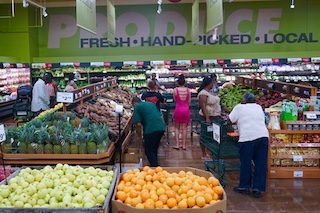
Affordable housing is not truly affordable unless it’s in a village center or downtown where the residents can easily access services, public transportation, and jobs. It’s also not really affordable unless it is highly energy-efficient, thereby reducing monthly utility costs. We are seeing oil prices climb again and this trend will continue. Our role will be to educate people about the importance of efficiency and teach them the skills to make it happen in their home, through well-trained contractors and innovative loan products, and also by reducing consumption.
Given the looming energy crisis, not to mention the near-universal push for austerity on the state and federal levels, we need to be, more than ever, responsible stewards of public funds. We will need to focus on sustainable models, like shared equity, that provide permanently affordable housing through a conservative and effective use of capital. The limited resources we have should be used to stabilize neighborhoods and provide continuing benefits to generations of low- to moderate-income citizens. As community developers, we need to focus on ensuring that our homeowners and tenants are successful and that the homes they live in are well maintained.
Growth is inevitable, and we must plan for it with an eye on long-term goals and consequences. But we can’t act alone — individual choices, however helpful or positive, will not make a significant dent in our energy use. Regional planning commissions, both within and between states, should be centers of strategic thinking about infrastructure, community facilities, housing, and agriculture. Conservation of our dwindling prime agricultural land is critical. This will allow local food production to flourish when we can no longer afford to buy meat and produce that’s been shipped halfway across the world.
Strong special interests, abetted by our human frailties (the appeal and power of denial and apathy), will need to be overcome to achieve these goals. Creative public/private partnerships and dogged advocacy will be required. We live in very unstable environmental and political times, and the pendulum will keep swinging back and forth. In this atmosphere, we have to be agile and adaptable, while clinging fiercely to our core values and mission. We must push to eliminate overly complicated bureaucracies and strive for better systems. The only way to protect the programs that really work is to maximize our personal and organizational efficiency and document compelling goals and outcomes.
I am blessed to live in a state where “green” is alive and well in every sense, where many dedicated and innovative people in all sectors are planning, building, and growing in very sensible and integrated ways. I hope that 36 years from now I’ll be able to retire proud of what we’ve accomplished and confident that my son has inherited a stronger community in which to thrive.




Comments